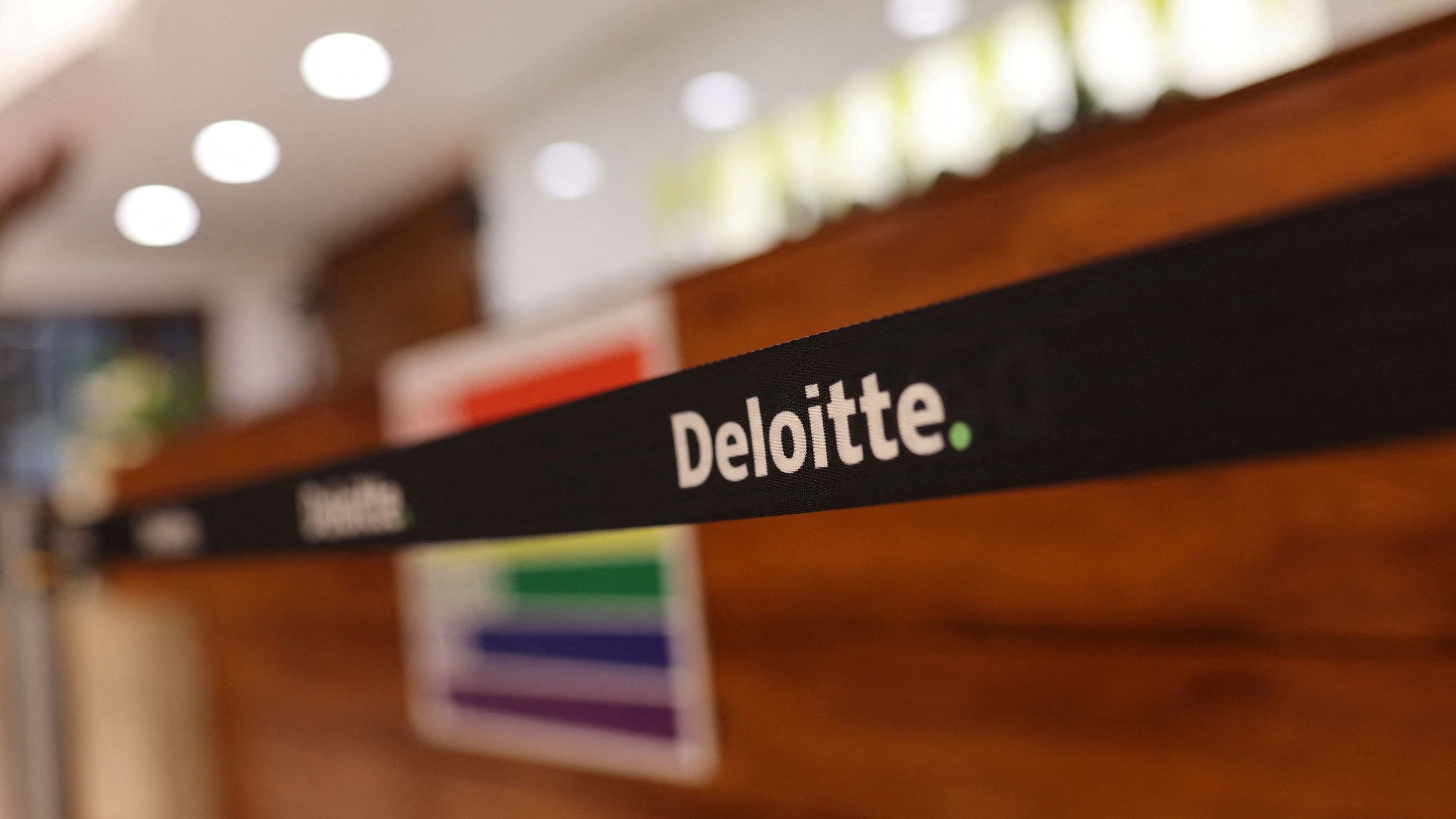
The Deloitte company logo is seen at their office in Gurugram, India, June 13, 2023.
Credit: Reuters Photo
Davos: Deloitte India on Wednesday unveiled an Enterprise Conscious Code initiative for sustainable, inclusive, and accessible software development that aims to cut up to 30 per cent of the emissions attributed to software alone.
Launching the Code here on the sidelines of the World Economic Forum Annual Meeting 2024, Deloitte India said this initiative marks a significant leap towards sustainable and responsible software development, supporting global efforts to reduce carbon footprint, increase energy consciousness, and ensure accessibility for everyone.
"The Enterprise Conscious Code (ECC) combines everything a company needs - the triple Ps of the bottom line - people, planet, and profits," it said.
The Code offers ways to build eco-friendly software, promoting the use of techniques that contribute to a greener planet.
Currently, about 3 per cent of the world's carbon emissions are attributed to the Information and Communications Technology (ICT) sector, equivalent to roughly 1.58 billion tonne per year.
Within this 3 per cent, ECC has the potential to reduce up to 30 per cent of the emissions attributed solely to software, which is a significant reduction in power consumption and storage, leading to direct cost savings, Deloitte said.
Romal Shetty, CEO, Deloitte South Asia said, "We are proud to introduce this new initiative, as a testament to our commitment towards sustainable growth of the technology industry."
"Innovation must go hand in hand with our responsibility to minimise the environmental impact of technology. By embracing such conscious practices, we aim to lead the way in creating software solutions that not only meet the highest standards of performance but also contribute to a greener and more inclusive future," he added.
Deloitte said emissions from core software often go unnoticed, quietly adding to greenhouse gases. Globally, for example, there are over 1 billion active websites, with 200 million in India alone.
Deloitte India said it analysed popular Indian websites, revealing that each website emits, on an average, CO2 equivalent to a petrol car covering 10km per user, assuming all pages are viewed. This is also equivalent to CO2 absorbed by nearly 20 trees per day, it added.